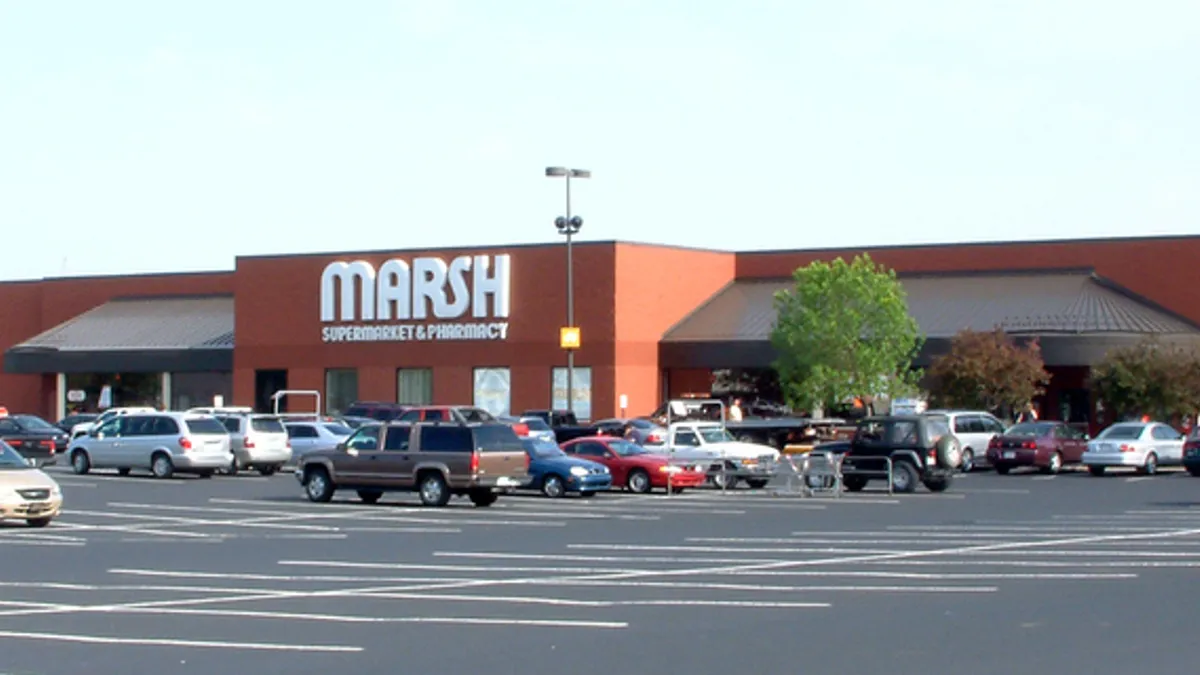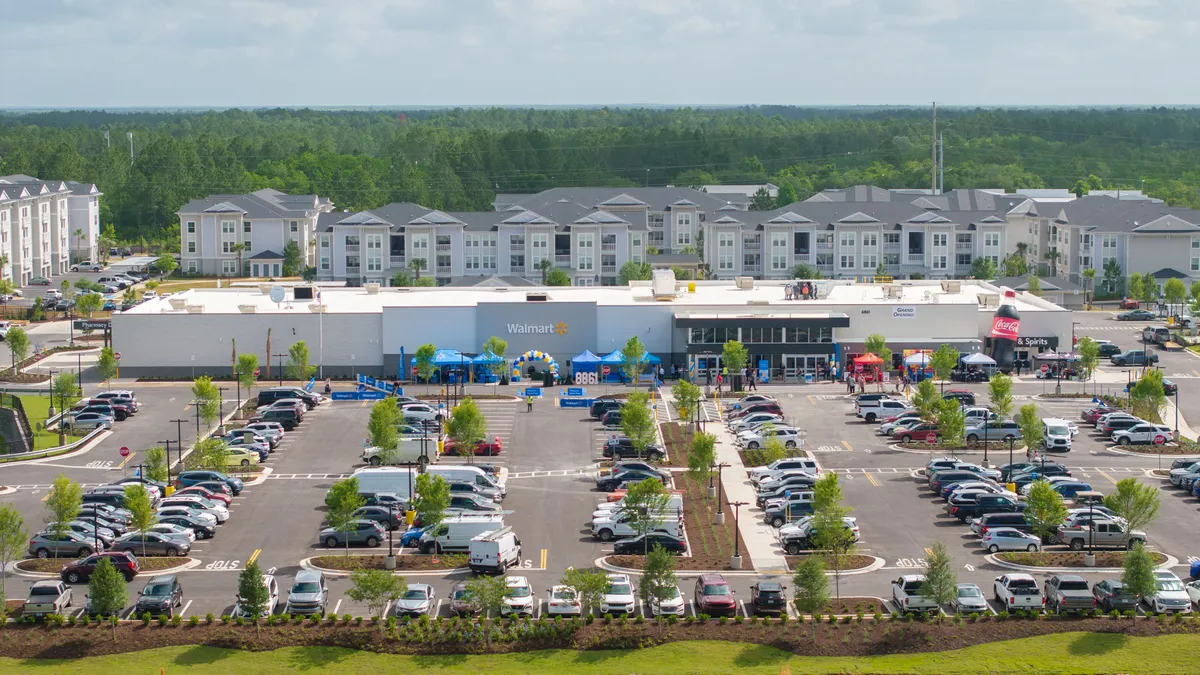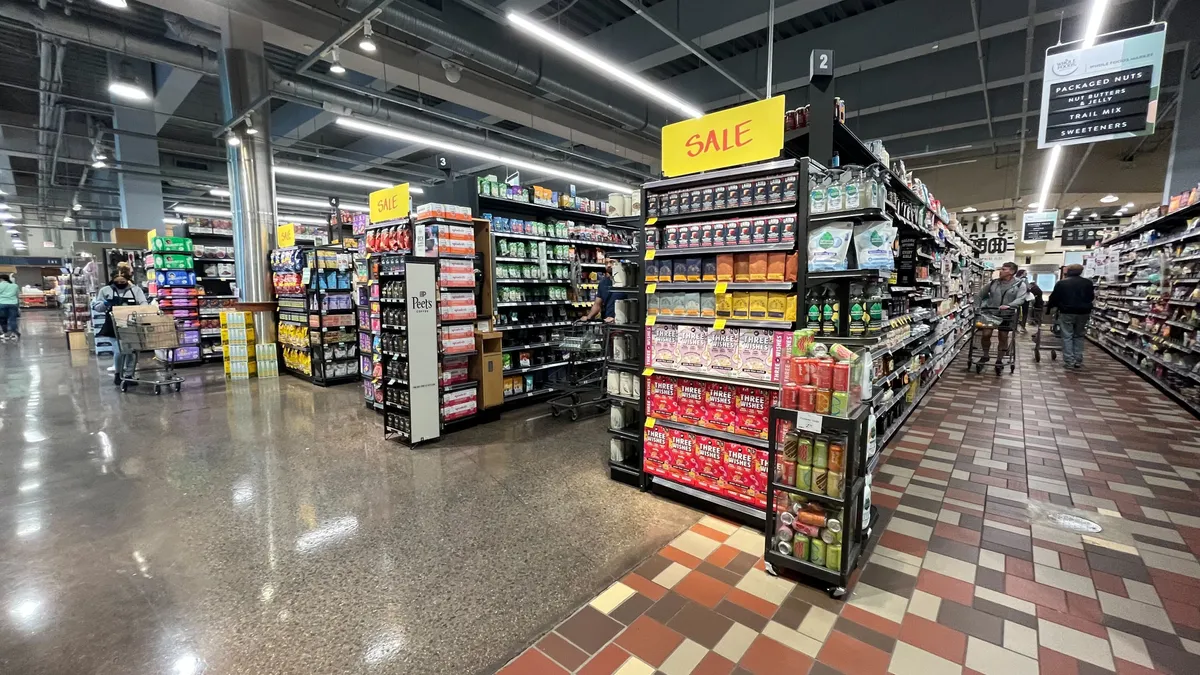Dive Brief:
- Marsh Supermarkets has closed three stores this year and failed to pay rent on six locations in Indianapolis, leading industry observers to believe the chain is headed for bankruptcy, according to Progressive Grocer.
- Marsh hasn’t paid rent on the six locations since last fall, and is facing additional fees and taxes for them. Meanwhile, the company says it’s planning further store closings next month in addition to three that have already happened this year.
- The company has cited an increasingly competitive industry for its store closings. Since 2006, when Sun Capital Partners bought Marsh, the chain has shrunk from 120 stores to 67.
Dive Insight:
Marsh, an iconic Midwest supermarket, has had a troubled recent history. On the verge of bankruptcy back in 2006, the chain was acquired by Sun Capital Partners. The firm soon became embroiled in bitter dispute with the retailer’s former CEO, Don Marsh, over millions of dollars in improper expenses — including potential visits to a mistress using the retailer’s private plane. In 2013, a jury ordered Marsh to pay the company he formerly oversaw $2.2 million.
Scandals aside, the bigger story with Marsh is its sluggish response to the influx of retailers invading its home turf. Indianapolis, a Marsh stronghold for many years, is now home to Meijer, Safeway, Whole Foods, Wal-Mart, a surging Aldi, and new natural and organic competitors Earth Fare and Fresh Thyme. Two years ago, Kroger initiated a $500 million campaign to build new stores and remodel existing ones in the city.
In late 2015, after several years of steadily closing stores, Marsh announced it would expand and remodel stores in the area. But the initiative struck some experts as misguided and overly ambitious. One retail analyst told the Indianapolis Star that Marsh’s sales per square foot were 30% lower than its competitors, and “the worst thing a struggling chain can do is build new stores.”
Now, with more closures on the horizon and the troubling news that it’s failing to pay rent on some of its stores, it appears Marsh is once again facing bankruptcy.
Some of Marsh’s struggles are unique to the company, but its competitive challenge is one traditional supermarkets around the country face. After decades of winning with the same shopping experience, chains now must fight to distinguish themselves in a crowded marketplace. Ahold Delhaize is betting on fresh affordability with Food Lion, while Southeast Grocers sees a robust private label lineup as key to helping its stores stand out.
Big, bold investments like these are difficult in a low-margin industry. But as Marsh shows, retailers must be proactive or risk perishing.










